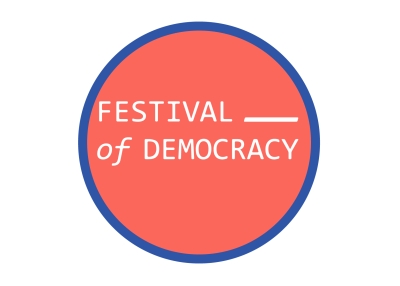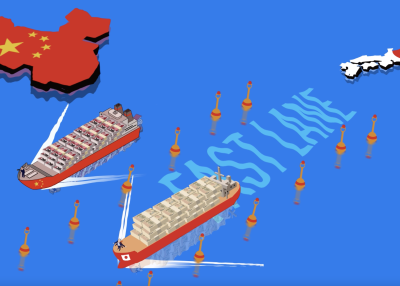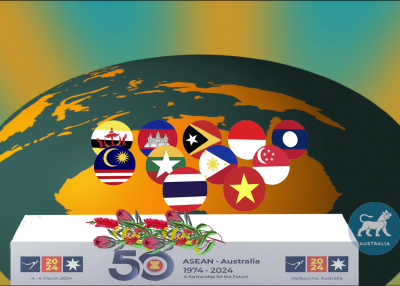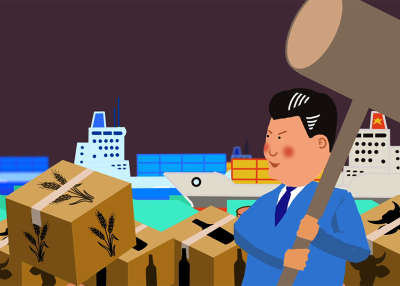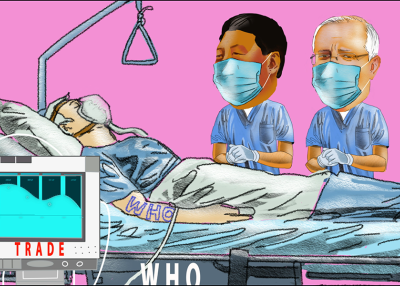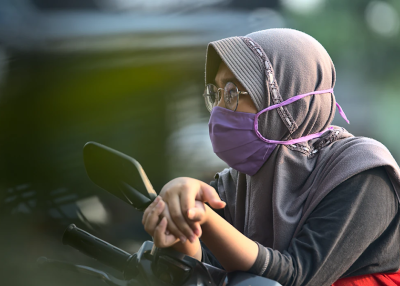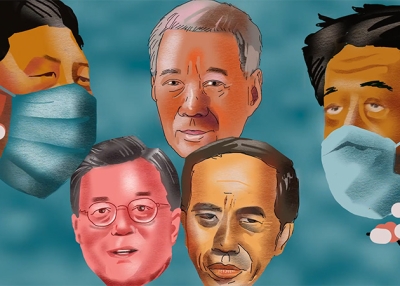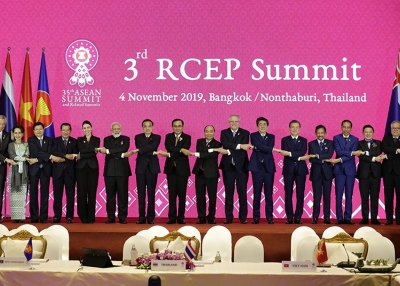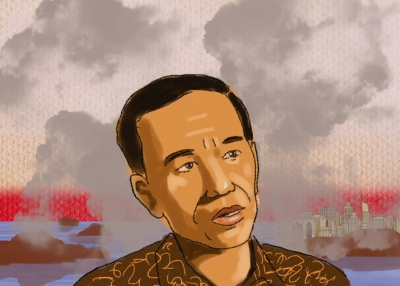Briefing MONTHLY #16 | April 2019
Election season | Economic outlook | Digital Asia
Yumcha: wheel of political fortune. Animation: Rocco Fazzari. View it here.
SPY STORIES V SHINZO AMORE
Foreign policy rarely makes an impact in Australian election campaigns and this one seems to be little different. Perhaps the two most interesting developments so far have been former Labor Prime Minister Paul Keating’s attack on intelligence agencies for being anti-China and incumbent Prime Minister Scott Morrison’s revelation that the foreign leader he would turn to first for advice is Japan’s Shinzo Abe. The Labor Opposition has devoted noticeably more of its campaign time to its previously announced regional engagement plans, although this partly reflects its overall focus on releasing more detailed new policy than the Liberal-National government. Opposition leader Bill Shorten said a Labor government would be less antagonistic towards China because not every engagement would be from a position of fear. He said other countries would expect Australia to be more self-reliant and active in the Asian region. In the campaign’s only substantial foreign policy speech so far, Labor’s expected foreign minister Penny Wong has recommitted to Labor increasing development aid as a share of national income every year without providing any firm amounts of money. She said closer engagement with Indonesia was something her Labor generation had “grown up with” and she would end the “bifurcation” between business and security interests over China. But the two Labor leaders rejected Keating’s criticism of the security agencies. The international relations issue Morrison has touched on regularly is his record stopping refugee boats, although he has warned about challenges ahead dealing with North Korea and US-China trade tensions. Referring to his respect for Abe, he said he had a “real wisdom about him which I found really helpful and which I have leaned on.” Morrison said the large Chinese population in Australia meant the bilateral relationship needed to be “managed carefully.” Foreign Minister Marise Payne found herself in the unusual position of defending the social media skills of Australia’s diplomats against calls for a major overhaul of digital communications in foreign policy in a report written by former diplomat and Liberal Party candidate Dave Sharma.
FESTIVAL OF DEMOCRACY
INDIA: ROUND FOUR

Voting at Gur Narain Khattri College in Kampur, Uttar Pradesh state. Picture: Greg Earl/ Asia Society Australia
Monday 10am: It’s the fourth of seven rounds of voting in India today. And stepping into the Indian polling precinct at Gur Narain Khattri College in the fiercely contest northern state of Uttar Pradesh is a bit like the old Licence Raj meeting Bollywood. The rule book is daunting with the local magistrate having to implement 145 steps to a fair vote. But the atmosphere outside is more party time than party politics. There’s table soccer for the kids and a selfie station for recording the day for everyone else. The wheelchairs at the front gate and separate sitting area for women reflect this year’s participation priorities – women and the disabled. But my ambition to give the much-vaunted Indian-designed electronic voting machine a workout is quickly frustrated. My India Foundation hosts say this is the first such visit to a polling room by a group of non-government foreign observers. However, the room manager says no one gets to even see the machine (which is behind a screen on a desk) but the voters. The selfie station beckons.
Read more from Greg Earl’s diary of a week in the middle of the election battle for the world’s biggest democracy. And a review, below, of Ruchir Sharma’s book Democracy on the Road.
INDONESIA: MUSLIMS DECIDE
Indonesia’s completed (but still not counted) election was often presented as a showdown between a secular country and an Islamic one. But the more fascinating divide in a country that is about 85 per cent is what happened inside that community. Edward Aspinall offers some compelling grassroots insights into how more moderate Muslims were much better organised during this campaign, in this New Mandala piece. He says: “The pluralists have found their rallying cry … and their Other (handily, though frequently misleadingly, summed up as supporters of the “caliphate”). And they have begun to mobilise, and not just through elections … A new political order is emerging within the structure of the old, posing challenges to analysts trying to map and understand contradictory trends.” Meanwhile in this South China Morning Post piece Karim Raslan explains how grassroots Muslim groups in East Java won the election for President Joko Widodo.
THAILAND: TWO FOR ONE
Chris Baker and Pasuk Phongpaichit have spent more than three decades in a personal and professional partnership explaining Thailand to the world. They both spoke at the Sydney Southeast Asia Centre just days after the disputed election and their different perspectives, combined, left a sense that more has changed than the headlines might suggest. Baker argued that the emergence of the Future Forward Party from nowhere to winning the third largest number of seats underlined that generational change was under way in Thailand that will not be contained by the military dominated establishment. “Future Forward’s leaders are being attacked in the courts over (their alleged disrespect for) the monarchy, but it is really because of their challenge to (the amount of monetary spent on) the military,” he said. While much has been made of the military and establishment control of Thailand’s Senate in selecting the next prime minister, Pasuk said that the lower house election would transform political debate because of the range of new voices from gay activists to welfare reformers. “The Parliament will be so different to previous parliaments that Thailand has had,” she said. Baker raised the prospect that the Thai business community might now emerge quietly as a force for reconciliation in the country because it understood the costs of a new round of violent confrontation. Pasuk said economic modernisation was not transforming Thai politics as much as what happened in South Korea in the 1980s, but labour mobility and new communications technology was nevertheless undermining the power of the traditional establishment to control society.
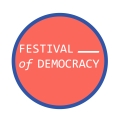
ASIA BRIEFING UNWIRED
Don’t miss Asia Society Australia's special podcast series on the elections in India and Indonesia.
Episode One we talk to two emerging young players in Indian politics Charu Pragya and Manuraj Shunmugasundaram.
Episode Two we join the campaign closer to home with the Indonesian expatriates running their country’s election in Australia and the Indian Bharatiya Janata Party’s local campaign chief Jay Shah.
Episode Three we caught up with dual-country expert Ward Berenschot and international relations theorist Parag Khanna about the big picture view of democracy in the two voting nations.
Listen on Soundcloud and Spotify.
NEIGHBORHOOD WATCH
RISKY BUT RESILIENT
April was a big month for new information on the outlook for the part of the world which takes more than two thirds of Australia’s exports, with overall confidence that most Asian economies are reasonably well placed to see through some global risks.
* Australia’s own Treasury kicked off this avalanche of forecasts with earlier than usual Economic Outlook due to the election which observed: “Growth in Australia’s major trading partners has outpaced global growth over the past decade and this is expected to continue over the forecast horizon as growth in the Asian region remains relatively strong.”
* The International Monetary Fund’s World Economic Outlook Update forecasts plateauing world growth at about 3.6 per cent a year over the medium term from 2020 underpinned by the rising relative contribution of China and India to the world economy.
* The World Bank’s East Asia and Pacific Economic Update Managing Headwinds notes: “The recovery in trade and manufacturing activity observed in the first half of 2018 lost momentum but domestic demand has remained resilient in much of the region, partly offsetting the impact of slowing exports.”
* But the Asian Development Bank’s Asian Development Outlook warns that risks remain on the downside with a deteriorating US-China trade row threatening Asian investment and uncertainty about US fiscal policy and a disorderly Brexit threatening curbing industrialised world growth which would flow on to China. Developing Asia is forecast to grow 5.6 per cent in 2020 compared with 5.7 per cent this year.
* The ASEAN+3 Macroeconomic Research Office (AMRO), a newer entrant into forecasting, says in its Regional Economic Outlook most of its 13 members are at the mid phase of their business cycle with growth near their respective long-term trends which makes them resilient as global risks rise.
The most interesting reading in the long term analysis sections of these reports includes the IMF’s study of the growing pricing power of large mostly digital economy multinationals; the ADB’s focus on making Asia more resilient to natural disasters; and AMRO’s pessimism about the ability of developing Asia to rely on manufacturing for growth.
OUT OF THE TRAP
New research has suggested that the debt trap fears surrounding China’s infrastructure building Belt and Road Initiative (BRI) are not as severe as the debate over the past year has suggested. The Rhodium Group study suggests that the controversial Chinese takeover of the strategically located Hambantota port in Sri Lanka is unusual rather than a common development. The interim study of 40 cases of Chinese foreign project debt renegotiation found that renegotiations were common but assets seizures like Hambantota were rare. It found that many of the cases involved an outcome favourable to the borrower rather than the Chinese lender because the borrower had access to alternative funding to use as leverage or had undergone a leadership turnover which changed the diplomatic relationship. It says: “The large number of debt renegotiations seen so far will likely serve as a brake on the narrative of accelerating Chinese outbound lending along the Belt and Road.”
ASIAN NATION
ONE ELECTION CERTAINTY

Chinese-Australian Liberal and Labour candidates for Chisholm, Gladys Liu (left) and Jennifer Yang hoping to boost cultural diversity in parliament. Picture: AAP
Few things are certain about the election outcome. But one is that the country will get its first female member of the House of Representatives with a Chinese background. That’s because both the governing Liberal Party and the opposition Labor Party have chosen women with Taiwanese or mainland Chinese origins as their opposing candidates in the Melbourne seat of Chisholm. This has produced some campaign firsts including the first candidate debate in Mandarin and the arrival of WeChat as a significant campaign communication channel. Liberal candidate Gladys Liu was born in Hong Kong and came to Australia to study speech therapy in 1985. Labor candidate Jennifer Yang was born in Taiwan and came to study information technology in 2001. Almost 20 per cent of the electorate’s residents were born in China and about half of them have the right to vote. More than one million Australians have a Chinese background, but none are serving in the 150 seat lower house of parliament.
RETHINKING CHINA
The debate about how to establish a new relationship with China continues to roll through Australia’s policy making and debating institutions creating a substantial reading list for a new government. In the latest contribution National Security College head Rory Medcalf writes in the Australian Journal of International Affairs (paywalled) that: “The Australia–China relationship has been through a bruising but necessary reality check. The next phase will involve rebalancing the diplomatic message, moving relations forward under the conditions of the new normal that has been established.” But he identifies a series of pitfalls to this process: reassuring Australian-Chinese foreign interference laws don’t target them; better outreach to the broader community especially business from Canberra policymakers; a possible review of defamation laws; and implementing a ban on foreign political donations.
Read Bates Gill’s essay on “bounded engagement” for Asia Society Australia’s Disruptive Asia 2019 Special China Edition.
BAMBOO CEILING
Law firms are the latest profession to have looked at themselves and discovered a disparity between their senior ranks from the growing ethnic diversity of their general workforce. A survey of eight law firms for the Asian Australian Lawyers Association found that 25 per cent of law graduates and 20 per cent of non-partner lawyers have an Asian background but only eight per cent of partners were Asian.
DEALS AND DOLLARS
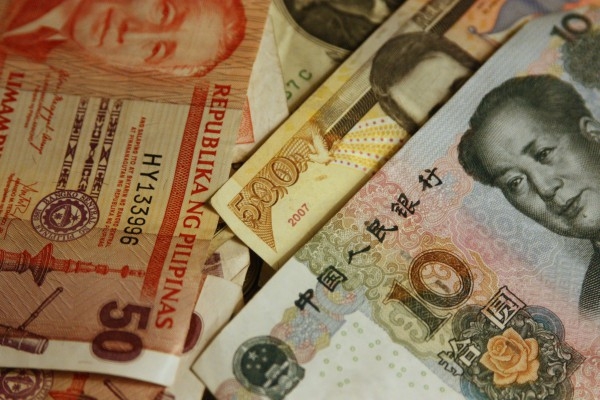
PAINTING A PATH TO CHINA
Nippon Paints is the latest Japanese company to pursue a new supply chain into China and other parts of the region via an Australian takeover bid. Apparently unworried by the troubled efforts of Japan Post (Toll Holdings) and Kirin (National Foods, Berri, Dairy Farmers) to implement this sort of strategy, Nippon is buying the leading Australian paint manufacturer DuluxGroup for $3.8 billion. As a leading paint supplier to China already, Nippon reportedly aims to add Dulux products – especially its Selleys adhesives and sealants – to its China product list.
COKE PUTS X INTO INDONESIA
Drinks company CC Amatil is stepping up its operations in Indonesia after some difficult operating results by taking its new venture arm Amatil X into the country. The move aims to capitalise on Jakarta’s emerging status as a start-up centre in South East Asia. “There is rapid growth in start-up and venture capital funding in Jakarta, and we aim to be part of that trend,” chief executive Alison Watkins said noting how CC Amatil was particularly interested in the intersection of new consumer trends and technology in the food and beverage sector. Amatil X was launched in Australia last year and will involve an internal entrepreneurial program and external strategic partnerships in Indonesia.
PNG HITS GAS … AND CABINET TURMOIL
The expansion of Papua New Guinea’s gas industry has taken a long delayed step forward with agreements to develop new gas fields which could double output. The agreements also reserve gas for PNG domestic industry; share facilities from the existing PNG LNG project to avoid duplication; provide the government with a break on financing its share; and provides access to revenue when prices are low to ease local community concerns. The key deal allows Oil Search, Total, PNG national oil company Kumul Petroleum and ExxonMobil, to develop the Elk-Antelope and P’nyang offshore gas fields. But unhappiness about how Prime Minister Peter O’Neill has managed the agreements has split his Cabinet and led to a challenge to his leadership.
ANZ’S ASIAN REBOUND
The ANZ Banking Group is talking up its improved returns in Asia after the sell-off of many of its equity investments, retail and commercial businesses accumulated under the “super-regional” plans of its previous two chief executives. Institutional bank chief Mark Whelan said in media interviews the cutting has ended and the bank is set for a new Asian growth phase. He said the restructuring had taken only three years compared with the expected five. International chief Farhan Faruqui says that when ANZ banks companies with an Asia presence its market share is 1.5 times its Australian competitors and when it banks international customers in Australia that figure increases to 2.8.
CBA’S CHINA EXIT
The Commonwealth Bank of Australia’s drawn out effort to sell its Chinese life insurance business BoComm appears to be moving gain. The Australian Financial Review reported BoComm Life's board quietly announced in China that it had approved the sale of CBA's 37.5 per cent stake to Japan's MS&AD Insurance Group for about $660 million. The Chinese sale is a precondition of CBA’s broader life insurance exit.
DAIGOUS DOWN UNDER
Pandering to Chinese business. Animation: Rocco Fazzari. View it here.
Blackmore’s major shareholder Marcus Blackmore has conceded the company needs to revamp the way it deals with the informal daigou purchasers of its nutrient products who were driving its China sales in the past. Announcing a quarterly profit slump in April, he said the daigou resellers had accounted for up to one third of China business but the company had fallen out of favour with them due to a lack of new products and new regulations on imports to China. Official China segment sales were up 19 per cent, but overall China business was down six per cent due to falling sales to daigou buyers in Australian retailers.
DIPLOMATICALLY SPEAKING
Senate estimates discussion about actions to support Australian citizen Yang Hengjun who has been detained in China since January.
DFAT first assistant secretary Graham Fletcher: The ambassador has sought meetings with other senior officials in China to discuss the case and has not so far had those meetings.
Senator Rex Patrick: Are they pending?
Fletcher: They haven’t been arranged, possibly because they know what we want to talk about.
DATAWATCH
ASIA AT THE DIGITAL FRONTIER
Source: IMF 2018 Regional Economic Outlook
This International Monetary Fund analysis shows how at any given income level, Asian economies are at the digitalisation frontier relative to their global peers and the process appears to be accelerating for relatively poor Asian economies.
WHAT WE ARE READING
DEMOCRACY ON THE ROAD by RUCHIR SHARMA (Penguin)
Ruchir Sharma estimates that he has almost driven the equivalent of a lap of the earth in his 27 trips over 25 years to investigate what makes Indian democracy tick. It all started when the former journalist was joining Morgan Stanley in 1996 and his US colleagues swarmed into Mumbai to greet the expected re-election of the economic reformist government of Prime Minister Narasimha Rao. He lost. And the new employee recalls: “Lost in their own Wall Street thought bubble, they didn’t recognise that Rao had no mass base and was never able to sell the benefits of economic reforms.” He persuaded the firm to let him periodically observe future elections from the grassroots. The product is this book which is partly rollicking road trip with a gang of political junkies and partly an insight into the incredible diversity of the political forces at work in the world’s biggest democracy. Sharma, a cosmopolitan globe travelling Indian, admits by the end he has learnt a lot about this own country that he didn’t know living in his own bubble. “What I did not understand, at least not clearly enough, is that India’s political DNA is fundamentally socialist and statist,” he writes. “The governing class does not want reform. The state machine allows them to appeal to voters by launching one welfare scheme after another, and to most politicians reform implies loss of control.” But despite this cynicism, those politicians know that Indians love their democracy and have a long record of tossing them out, often as the result of a complex shift in social cast or ethnic alliances. “In no country are the community and family roots of political battles more complex or intense,” Sharma writes confidently that “when democracy is said to be in retreat worldwide, it is thriving in India.”
ON THE HORIZON
AND THE WINNER IS …
The outlook for resolving Asia’s recent elections and new government.
Thailand: Results for 350 single member seats will be released this week although there is still some uncertainty about the 150 party list seats.
Philippines: Results should be clear within a day of the May 17 election for some Senators, lower house members and various regional positions. President Rodrigo Duterte is not up for election but is expected to gain more support in the important Senate.
Indonesia: Official results for the presidential ballot are due by May 22 with the new president to be sworn in on October 20.
India: 543 lower house seats will be declared on May 23.
ABOUT BRIEFING MONTHLY
Briefing MONTHLY is a public update with news and original analysis on Asia and Australia-Asia relations. As Australia debates its future in Asia, and the Australian media footprint in Asia continues to shrink, it is an opportune time to offer Australians at the forefront of Australia’s engagement with Asia a professionally edited, succinct and authoritative curation of the most relevant content on Asia and Australia-Asia relations. Focused on business, geopolitics, education and culture, Briefing MONTHLY is distinctly Australian and internationalist, highlighting trends, deals, visits, stories and events in our region that matter.
Partner with us to help Briefing MONTHLY grow. Exclusive partnership opportunities are available. For more information please contact [email protected]
Read previous issues and subscribe >>
